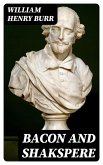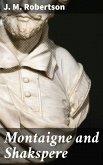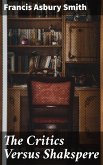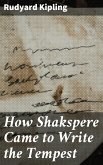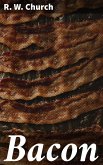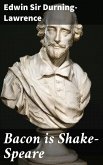In "Bacon and Shakspere," William Henry Burr delves into the controversial theories surrounding the authorship of Shakespeare's works, positing that the true genius behind these masterpieces was none other than Sir Francis Bacon. Burr's literary style is characterized by a meticulous argumentation infused with wit and eloquence, allowing readers to navigate the complex interplay of literary genius and societal influence in the Elizabethan era. Set against a backdrop of burgeoning humanism and the intellectual milieu of the Renaissance, this work interrogates the prevailing narratives about Shakespeare's life, inviting readers to reconsider established literary canons while illuminating the intricacies of authorship debates that continue to resonate in contemporary scholarship. William Henry Burr, a noted critic and author of diverse interests, possessed a keen fascination with the relationship between literature and philosophy. His exploration of Bacon's intellect and its implications for Shakespeare's writing reveals Burr's own commitment to understanding the impact of context on creativity. Burr's background in law and literature offers a unique lens through which he dismantles conventional assumptions, merging literary analysis with biographical inquiry. This provocative work is recommended to scholars, students, and general readers alike who seek a fresh perspective on the authorship question. Burr's engaging prose, rich in historical context and analytical depth, invites readers into the enthralling world of literary speculation, pushing the boundaries of traditional literary study and igniting fervent discussion.
Dieser Download kann aus rechtlichen Gründen nur mit Rechnungsadresse in A, B, BG, CY, CZ, D, DK, EW, E, FIN, F, GR, H, IRL, I, LT, L, LR, M, NL, PL, P, R, S, SLO, SK ausgeliefert werden.



